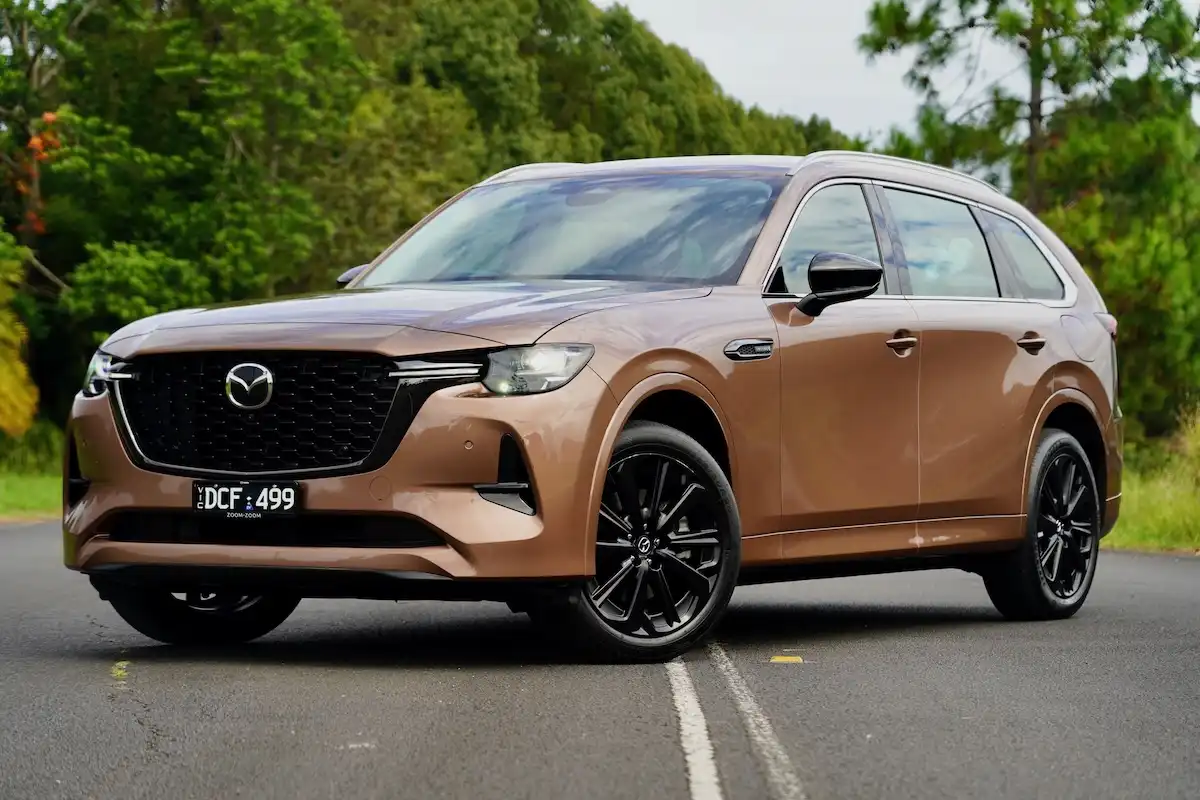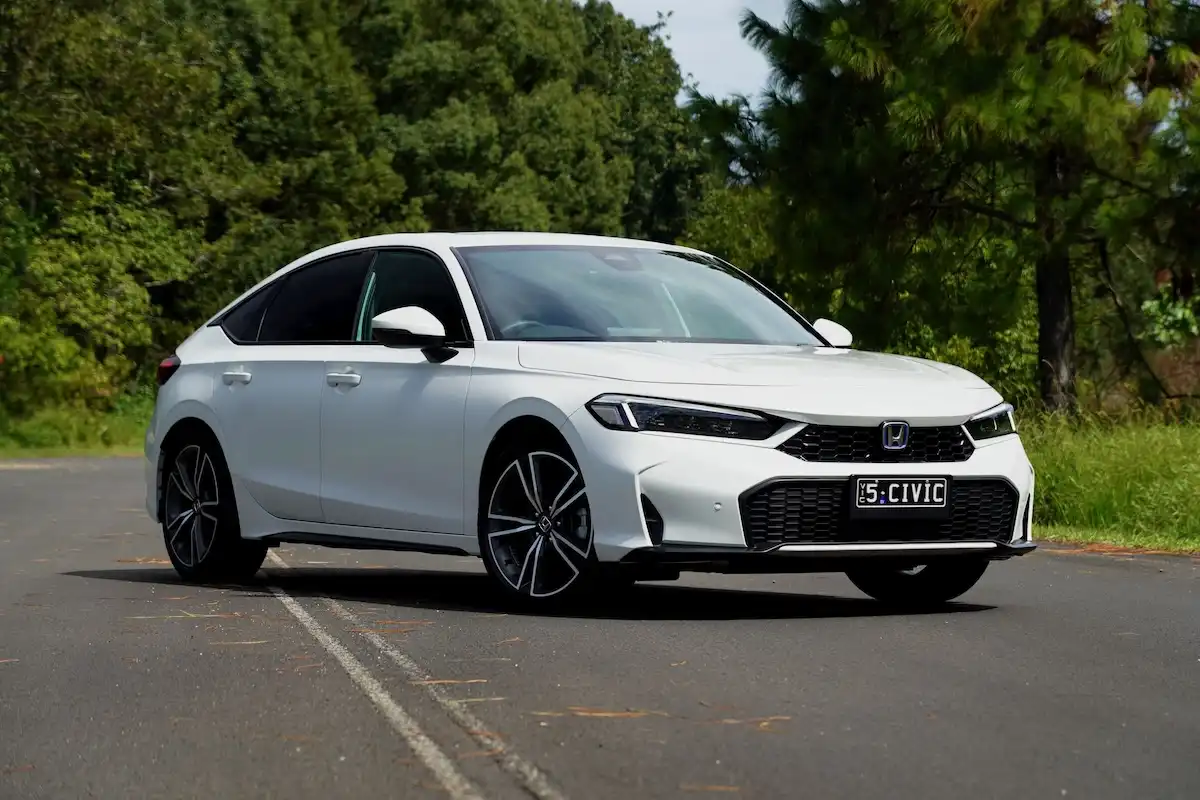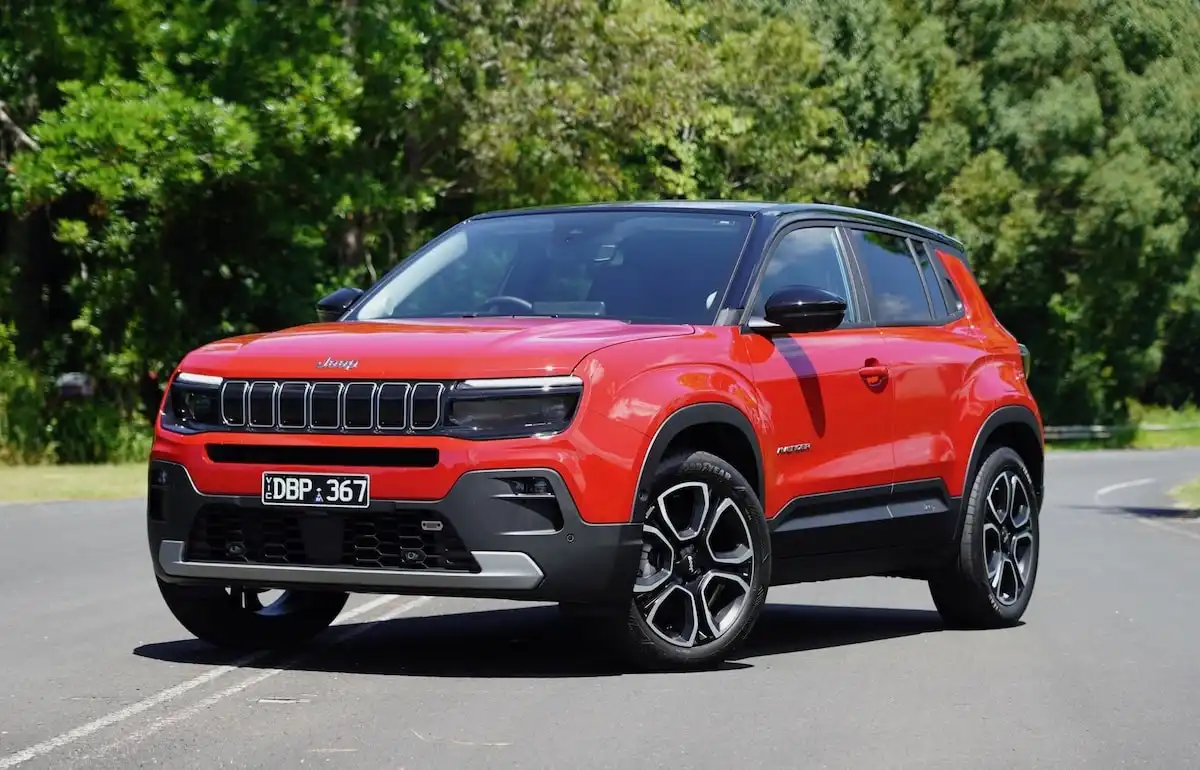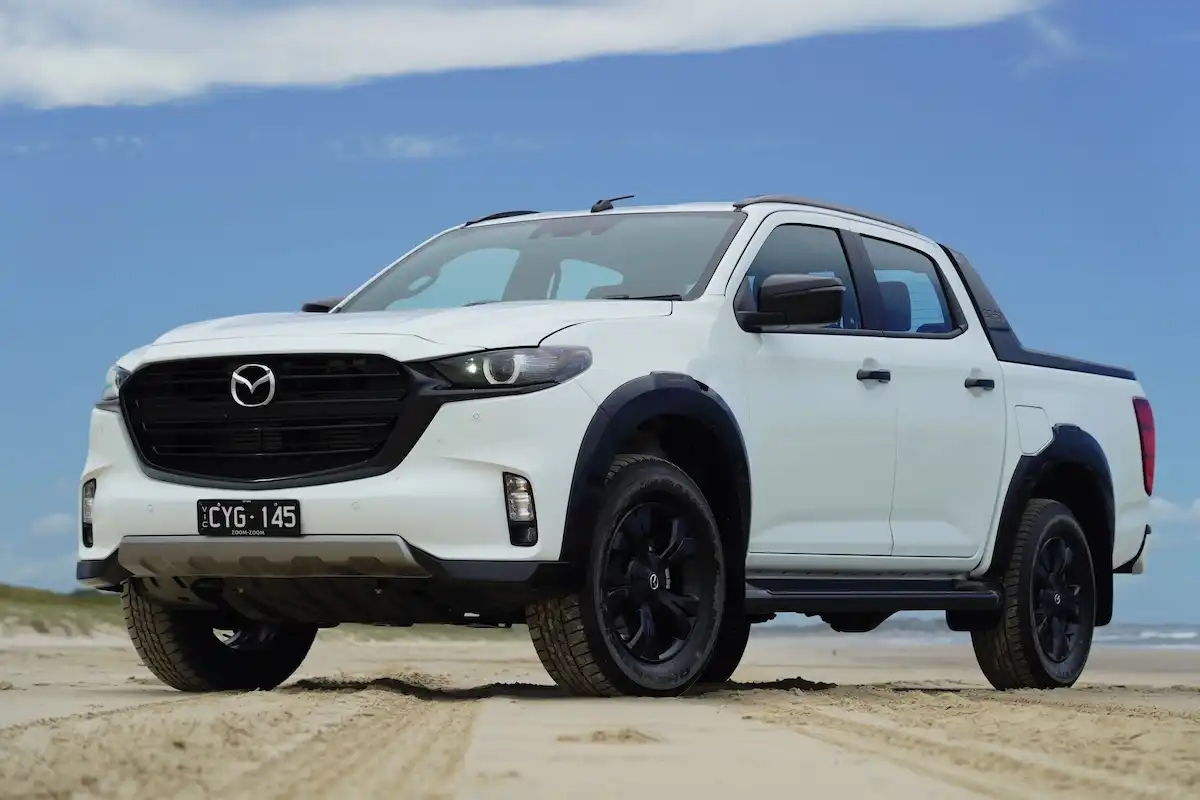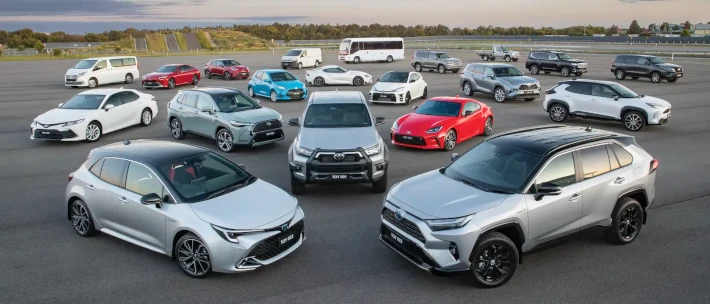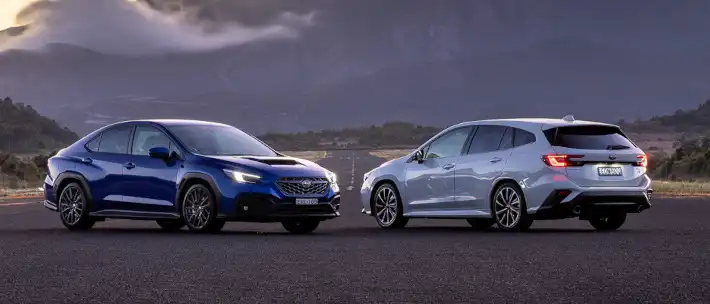Hyundai’s recipe is remarkably simple, albeit with a number of genuine performance additions. Reduce weight from the standard version of the i20 that it is based on, extract more power from the engine and upgrade the brakes and suspension for one of the most pure driving experiences you can buy for less than $35,000.
The question remaining, though, is just how good is the Hyundai i20 N, how well does it stack up against its competitors and how well can it potentially serve you and your family in terms of practicality and daily driving comfort? Let’s find out.
Starting Price: $32,490
OnlineAuto Savings: Enquire now
Hyundai i20 (N) Specifications
| Model Date | 2022 |
| Make | HYUNDAI |
| Model | i20 |
| Series | BC3.V1 MY22 |
| Variant | N |
| Body | 5D HATCHBACK |
| Fuel type | UNLEADED PETROL |
| Transmission | 6 SP MANUAL |
| Drive | FWD |
| Engine | TGDi |
| Engine capacity | 1598 |
| Engine configuration | VARIABLE DOUBLE OVERHEAD CAM / 16 valves |
| Engine RPM | 5500 / 1750 |
| Cylinders | T4 |
| Torque | 275 |
| KW | 150 |
| Fuel tank size | 40.0 |
| Fuel usage specs | 6.9 / 0.0 |
| CO2 | 157 |
| ANCAP security rating | Unrated |
For more details and other variants, check Hyundai i20 car page.
Need help narrowing down your choices?
Get in touch with one of our Car Buying Specialists today
Request a quoteHow Much Does It Cost?
The Hyundai i20 N comes as a standalone variant sitting atop the i20 lineup, with prices kicking off from $32,490 for the single-spec i20 N. Keep in mind that these prices are subject to change, and do not include on-road costs.
How Much Can OnlineAuto Save You?
You could save money by using the help of one of OnlineAuto’s new car brokers to assist you in finding the best new car for you.
What Features Does the Hyundai i20 N Have?
The Hyundai i20 N comes riding on a set of 18-inch alloy wheels wrapped in Pirelli P-Zero tyres, while receiving performance updates like a set of 320mm front and 262mm rear brakes, a mechanical limited-slip differential, a rev-matching system, an active variable exhaust, and a launch control system.
Comfort and entertainment features fitted to the i20 N come in the form of a set of automatic LED head and tail lights, keyless entry and start, rear-view camera with parking sensors, climate control, automatic wipers, cloth and leather upholstery, wireless smartphone charging, a 10.25-inch digital driver’s display complemented by a 10.25-inch infotainment system fitted with Apple CarPlay and Android Auto, satellite navigation, DAB+ digital radio that is paired with a seven-speaker sound system from BOSE.
Range Features:
-
Pirelli-designed 18-inch alloy wheels
-
Pirelli P-Zero tyres
-
Upgraded suspension, dampers and anti-roll bars
-
Limited-slip differential
-
Active variable exhaust
-
Launch control system
-
320mm front and 262mm rear brakes
-
Rev-matching system
-
LED head and tail lights
-
Rear-view camera with parking sensors
-
Keyless entry & start
-
10.25-inch digital driver’s display
-
10.25-inch infotainment system with Apple CarPlay & Android Auto
-
Satellite navigation and DAB+ digital radio
-
Cloth/leather upholstery
-
Seven-speaker sound system from BOSE
-
Wireless smartphone charging
What Colours is the Hyundai i20 N Available in?
The Hyundai i20 N range comes available in a choice of polar white, performance blue, sleek silver metallic as no-cost options, with the dragon red mica finish coming at a price of $495.
Is it Fun to Drive?
The Hyundai i20 N has been designed primarily as a driver’s car, and we’re pleased to report that Hyundai’s engineers have very much succeeded when it comes to this brief. Taking off from a standstill, the turbocharged 1.6-litre throws all of its 150kW/274Nm of power to the front wheels in an immediate fashion, offering acceleration that rivals far more expensive sports cars. Power is thrown to the road via a six-speed manual transmission, with no automatic or DCT available, which cements the i20 N’s reputation as a pure driver’s car.
0-100km/h times are rated at 6.2 seconds, which doesn’t sound rapid on paper, but with all the noise, feedback through the steering wheel and the way the little engine serves up its power low down in the rev range, few drivers will be left wanting more. In terms of the power delivery, the turbo serves up the majority of the power in the low-to-mid range, meaning that revving the engine out to the red line doesn’t offer too many benefits up top, ensuring the driver is busy shifting away with the gear lever.
Hyundai’s chassis and suspension revisions have ensured that the i20 N can handle a heap of punishment in the corners, complemented by the lively front axle that features a limited-slip differential to send power to either of the front wheels, depending on where grip is needed. As a result, the i20 N absolutely destroys corners, offering a heap of traction in high-speed bends while giving the driver a clear sense of feedback through the precise, weighted steering wheel.
As a design exercise for purists, the i20 N ticks all the important boxes. The engine is powerful, the brakes have been upgraded to help wipe off speed rapidly, the suspension is tough and up to the task of high-speed cornering, and the clever limited-slip differential ensures the i20 N can hold speed and maintain traction through the bends.
All up, the changes made to the i20 platform have resulted in a genuinely exciting, visceral and addictive driving dynamic in the i20 N. It’s far more exciting than something like a Polo GTI, and offers more performance on the road than the Ford Fiesta ST, and has fast-become one of the yardsticks that future hot hatchbacks will be measured on.
Is the Hyundai i20 N Suitable For Daily Driving?
While the majority of the i20 N’s platform has been revised from the standard passenger car with performance in mind, Hyundai has made a conscious effort to ensure that the i20 N remains a usable option for daily driving and commuting. As a result, the i20 N can be considered a true daily driver, although there are some sacrifices that you’ll need to make, mainly in the form of that stiff suspension platform, and the manual gearbox.
As a daily drive and commuting vehicle, the i20 N remains perfectly suited to the urban environment, considering it retains its original pint-sized proportions which makes it easy to navigate tight traffic situations and while parking. So long as the driver is willing to put more effort into shifting through gears with the manual gearbox, the i20 N is a great and engaging little city car that can make an embarrassment of other cars off a set of traffic lights.
The tradeoff of all this performance, however, means that the i20 N is significantly less comfortable than the standard i20 passenger car. With revisions and upgrades made to the suspension with performance keenly in mind, the ride quality has deteriorated, but depending on the road conditions on your commute, this may not prove a problem. Tumbles from a number of small to medium bumps are transmitted throughout the cabin, and makes the i20 N somewhat fiddly to drive on bumpy and rough road surfaces. On smooth, urban roads, however, the i20 N remains comfortable for a relaxing commute, although you’ll notice more of the bumps than you would compared to the standard car.
Is it Practical and Spacious?
Considering that Hyundai has maintained its original proportions, the i20 N is somewhat limited when it comes to space, although Hyundai’s clever interior and packaging designs translate to a clever cabin filled with practical touches. The front of the cabin greets the driver and front passenger with a sporty yet refined cockpit filled with premium touches reminding you that this is not a standard i20. The steering wheel features a pair of blue performance switches, as well as a red ‘rev’ button to remind you of its performance potential, while the driver receives a digital driver’s display and the front passenger can navigate the sleek 10.25-inch infotainment system. The sporty bucket seats do a great job of holding you in place through high-speed corners while offering enough support and comfort while driving on your daily commute.
The driving position offers a heap of flexibility to get completely comfortable, while the cabin benefits from a relatively lofty roofline adding to the sense of space inside the i20 N. Practical touches include the usual set of storage in the door bins, as well as storage underneath the folding armrest, a pair of cup holders and a small storage tray in front of the gear lever for smartphones that doubles as a wireless charging pad.
While moving to the rear of the cabin, you might be surprised with just how much room there is available in the second row of the i20 N. There’s a heap of headroom to ensure tall adult rear passengers remain comfortable, and there’s enough legroom on offer for adults, too. While tall adults might get uncomfortable on extremely long journeys, the rear cabin of the i20 N remains perfectly suited to families with young children, particularly with the easily-accessible ISOFIX anchors and top tether mounts that accommodate bulky child seats. There are some issues with forward visibility in the rear of the cabin, which is the result of those large bucket seats in front of rear passengers, but this remains a small gripe.
The good news keeps coming when you move to the rear of the i20 N and open up the boot, which can accommodate 326L of luggage, shopping bags and bulky goods, which expands to 1,123L with the rear seats folded down. For the segment, this is a healthy amount of space in the boot, meaning that while the i20 N is aiming to conquer the sporty-end of the market, it retains its practical elements that make it perfectly suited to a growing family.
Is it Safe?
The Hyundai i20 N is yet to be officially tested by ANCAP, however, the car on which the i20 N is based received a five star safety rating back in 2015, scoring 85% for adult protection, 73% for child protection, 79% for road user protection and 64% for safety assist technology.
As standard, the i20 N comes packaged with a rear view camera with parking sensors, autonomous emergency braking with pedestrian detection, blind-spot monitoring, rear cross-traffic alerts, lane-keep assistance, driver attention monitoring, traffic sign recognition and front, front-side and curtain airbags around the cabin. These features match what’s on offer from key competitors in the segment, and mean that the i20 N is well-credentialed when it comes to safety equipment.
Is it Fuel Efficient?
While the engine has been tuned with performance, rather than fuel economy in mind, the i20 N returns some fairly impressive figures in more mundane, everyday driving situations. Officially, the engine is rated at 6.9L per 100km on a combined cycle, which makes the i20 N slightly thirstier than the Polo GTI and the Ford Fiesta ST, although it offers slightly more power than its main rivals.
Our Verdict: Is the Hyundai i20 N Worth it?
Hyundai’s performance micro hatch is an absolute gem hiding within Hyundai’s burgeoning lineup of quality cars, so long as you can live with the firm ride quality on rougher road surfaces. It’s difficult to drive the i20 N without a smile on your face, and for that simple reason, we believe that Hyundai has absolutely knocked it out of the park with the i20 N’s fun-loving and extremely capable driving dynamics, while retaining some real-world practical elements.
There’s very few things to dislike about the Hyundai i20 N, so with that keenly in mind, we can’t recommend it enough for a spot on your shortlist of affordable performance hatches. On that note, if you’re in the market for a new car, you can get a free quote and see how much OnlineAuto can save you on your next car, or call us on 1300 719 925
Five Specs You Need to Know
-
Five-year, unlimited KM warranty
-
12-month/10,000km service intervals
-
6.9L/100km combined cycle fuel economy
-
150kW/275Nm translates to 0-100km/h sprint in 6.2 seconds
-
326L boot
Pros
-
Spirited turbocharged engine with a heap of mid-range pull
-
Outstanding grip and performance from front suspension system
-
Lively steering system with confidence-inspiring limited-slip differential
Cons
-
No official ANCAP safety rating yet
-
Firm ride on rough surfaces
-
Turbocharged engine requires short service intervals
Hyundai i20 Ford Puma Competitors
Hyundai i20 |
VS |
Kia Rio |
| Hyundai i30 | ||
| Kia Picanto | ||
| Toyota Yaris | ||
| Ford Fiesta |

